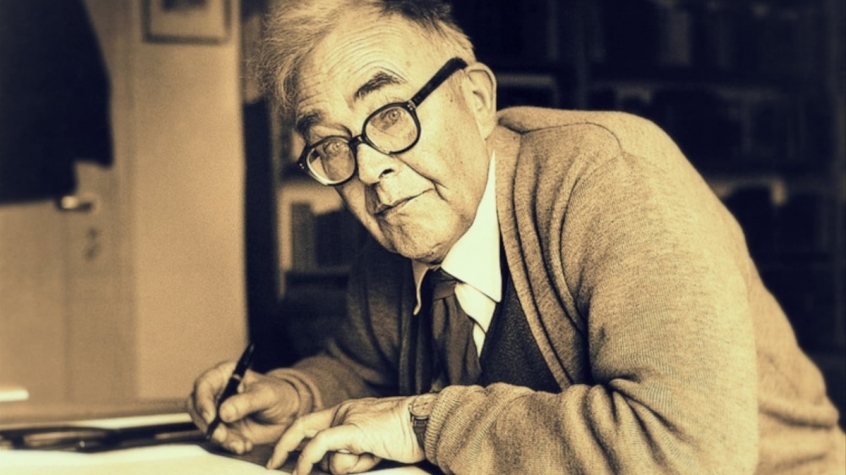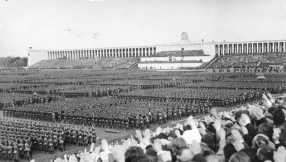Today is the birthday of Karl Barth, a Swiss pastor, enigmatic thinker, and arguably the greatest theologian of the 20<sup>th century.
Though schooled in 19<sup>th century liberal theology, Barth's thinking came to stand as a stark challenge to such an approach. While some wanted to reshape theology in light of post-enlightenment intellectual advances, Barth emphasised humankind's utter reliance on God's revelation – captured ultimately in the person of Jesus Christ – for knowledge of God and reality.
Barth's became famous for his dismissal of human 'religion', which he saw as an attempt to 'possess' God. God's revelation of himself was also a judgment, a withering condemnation of human hubristic religion, which could include attempting to 'capture' God in church tradition or even the Bible.
Barth saw the failures of religion evident in the German church's support of German war aims in 1914. In its capitulation to the Kaiser, Barth saw the dangers of a church indistinct from the human culture around it and presuming to speak for God.

In World War Two the question of religo-political compromise arose again. Barth was part of the Confessing Church, which stood boldly against the spectre of Nazism.
His iconic, multi-volume work Church Dogmatics evidences his towering intellect, but Barth also had a pastoral heart and a simple message at the heart of his theology. He was once asked after a lecture in Chicago if he could sum up his theology in one sentence. He replied in the words of a song his mother had taught him: 'Jesus loves me, this I know, for the Bible tells me so.'
Here are nine quotes that capture some of his thought.
1. To clasp the hands in prayer is the beginning of an uprising against the disorder of the world.
2. Heaven and earth, nature and man, comedy and tragedy...the Virgin Mary and the demons...Mozart simply contains and includes all this within his music in perfect harmony. This harmony is not a matter of 'balance' or 'indifference' – it is a glorious upsetting of the balance, a turning in which the light rises and the shadows fall, in which the Yes rings louder than the ever-present.
3. The enterprise of Adolf Hitler, with all its clatter and fireworks, and all its cunning and dynamic energy, is the enterprise of an evil spirit, which is apparently allowed its freedom for a time in order to test our faith in the Resurrection of Jesus Christ.
4. When we are at our wits' end for an answer, then the Holy Spirit can give us an answer. But how can He give us an answer when we are still well supplied with all sorts of answers of our own?
5. While it is beyond our comprehension that eternity should meet us in time, yet it is true because in Jesus Christ eternity has become time.
6. I had to show that the Bible dealt with an encounter between God and Man. I thought only of the apartness of God. What I had to learn after that was the togetherness of Man and God – a union of two totally different kinds of beings.
7. As ministers we ought to speak of God. We are human, however, and so cannot speak of God. We ought therefore to recognise both our obligation and our inability and by that very recognition give glory to God.
8. The goal of human life is not death but resurrection.
9. The theologian who labours without joy is not a theologian at all. Sulky faces, morose thoughts and boring ways of speaking are intolerable in this field.













